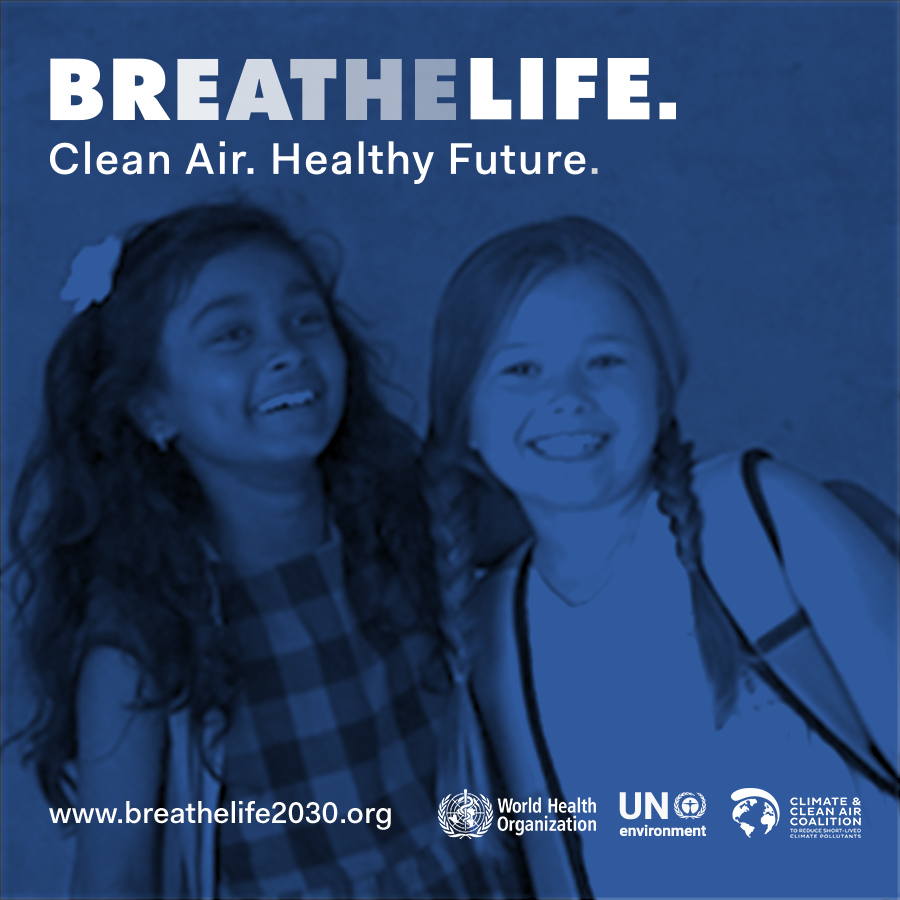Clean Air Day 2023
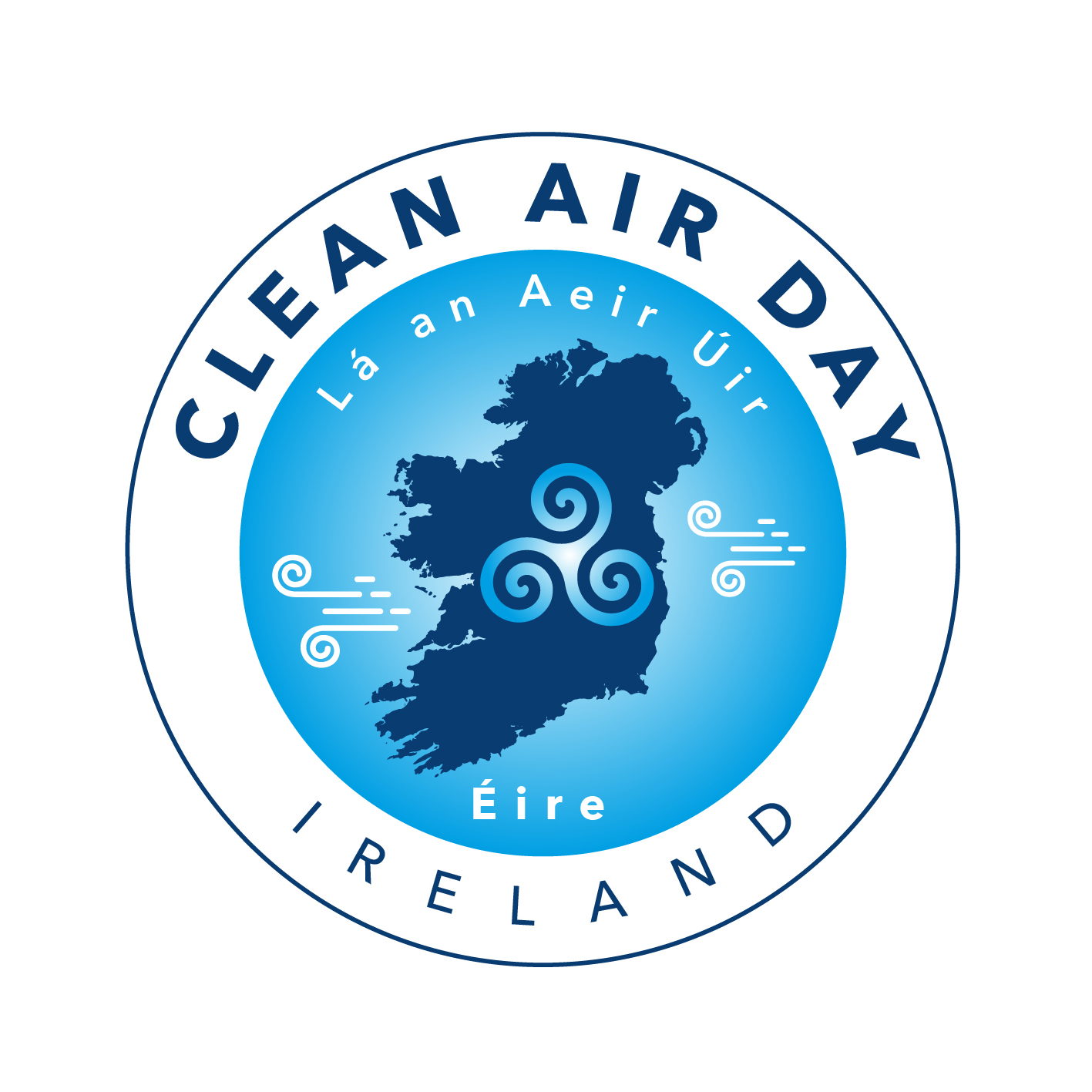
On September 7th the United Nations’ International Day of Clean Air for Blue Skies (Clean Air Day) will be celebrated for the first time in Ireland – here in Cork City.
For Clean Air Day 2023, the United Nations are calling upon everyone, from governments and corporations to civil society and individuals to come #TogetherForCleanAir.
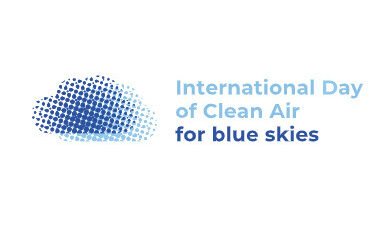
Good air quality is essential for our health and well-being. By making simple changes in our day-to-day life, we can make a positive impact on the air quality in our neighbourhoods and across our city.
In the period coming up to Clean Air Day, banners with information on how everyone can take simple steps for cleaner air will be displayed across the city.
What is Happening in Cork for Clean Air Day?
Highlights of the day include a light show at Cork City Hall, an air quality information hub hosted in the Library on Grand Parade, a lunch-time cycle to Fitzgerald’s Park and an evening time Clean Air Day Roundtable discussion in City Hall. More information on events for the day are set out below.

Lunch-time Cycle
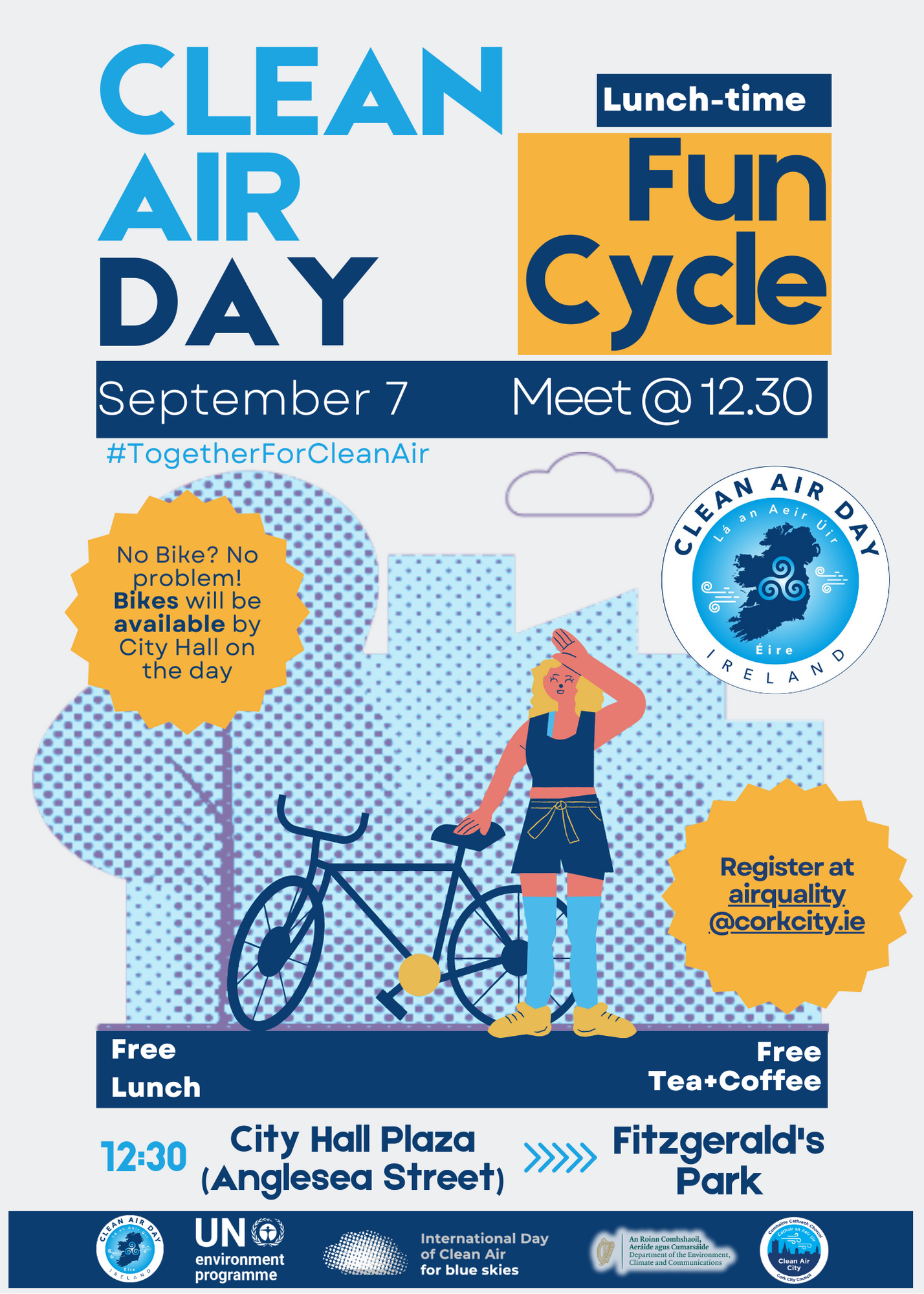
Behav-i-air
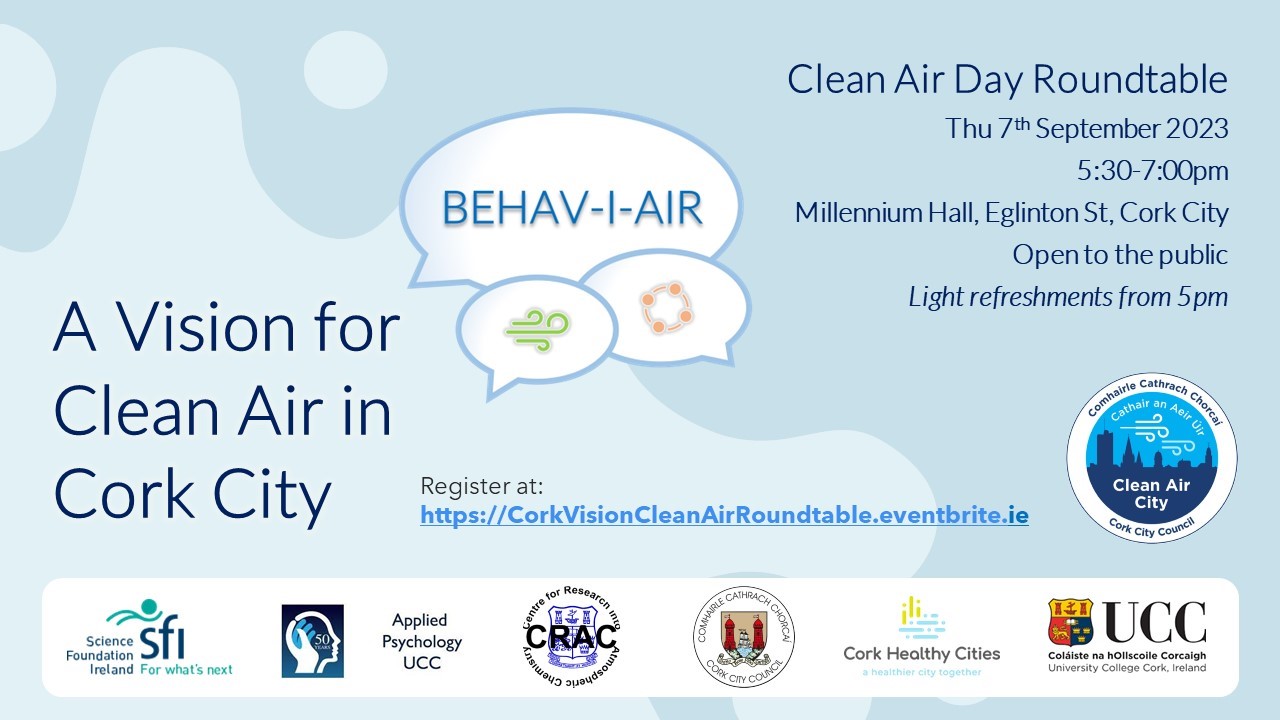
Simple Steps to Cleaner Air
Air Quality in Ireland is generally good but can deteriorate during winter months and during periods of heavy traffic. We can all make simple choices for cleaner air every day:
Transport and Behavioural Change:
Walk or cycle. Active travel such as walking or cycling helps to reduce pollution and is better for your health.
Take the Bus or train. Whether travelling to work, going shopping, popping into town to meet with friends or getting home safely after a good night out, using public transport can be less stressful and more relaxing than driving. It also helps the environment.
Minimize trips & consider carpooling. Carpooling with your work colleagues, classmates or people who live close by can be an efficient mode of sustainable transport. Taking less trips by yourself can save you money, time, and stress. It also prolongs the life of your vehicle and reduces traffic volumes in towns and cities.
Work from home. If your workplace allows, consider working from home for part of your working week.
Go electric. If it is affordable, consider an electric or hybrid car for you next purchase.
Cleaner Air at Home: Better Heating
If you are using solid fuels to heat your home, consider the following:
- - A – Ask yourself: "Do I really need to light a fire?" Use cleaner heating sources instead if they are available to you.
- - B – Burn cleaner: use more efficient low-smoke fuels (dry/seasoned wood, wood briquettes, low-smoke solid fuels).Avoid the use of smoky solid fuels (peat, bituminous coal and wet wood). Make sure you use the right fuel for your appliance.
- - C – Clean and maintain your chimney and heating appliances at least once a year.
Simple Steps to improving your Indoor Air Quality at Home
Ventilate. Ventilate your home frequently to help replenish air, dilute pollutants and reduce dampness.
Keep it Clean. Regular cleaning and vacuuming of carpets helps to reduce allergens such as dust and dust mites.
Don’t Smoke. Avoid smoking & vaping indoors.
Avoid VOCs. Avoid products containing Volatile Organic Compounds (VOCs), which are harmful to your health. VOCs may be contained in paints, cleaning products, new furniture and aerosol sprays.
Burn clean. If you light a fire, use low-smoke fuels and keep your appliance clean and serviced.
Monitoring the Air at Home
Make sure you have a functioning carbon monoxide alarm and smoke alarm in your house.
Never burn rubbish.
Never burn rubbish in an open fire or your solid fuel stove.
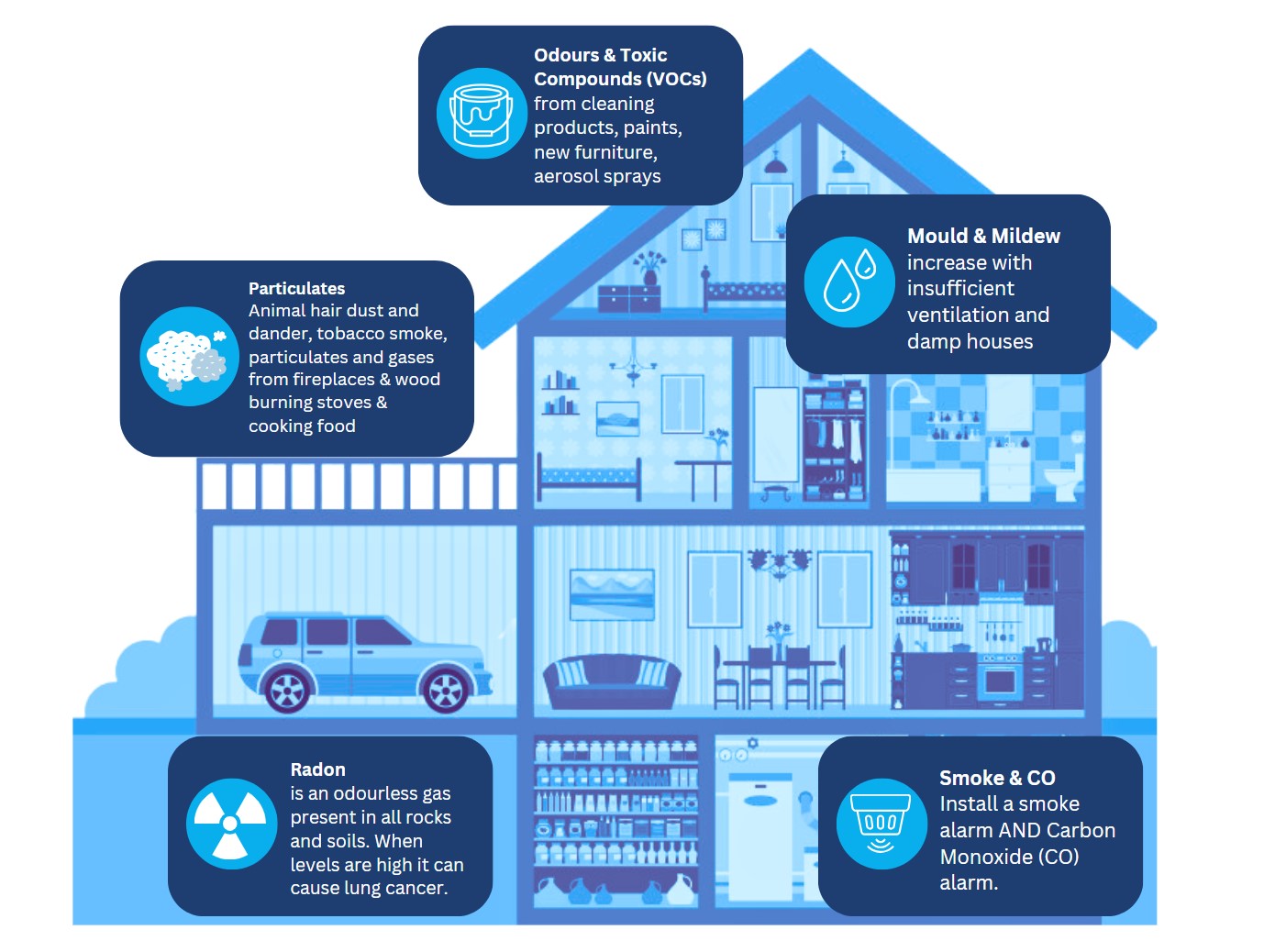
Did you know…?
The World Health Organization has recognised air pollution as the biggest environmental risk to human health. Polluted air can cause lung disease, such as asthma and lung cancer, as well as stroke and heart disease.
Children, the elderly, and people with pre-existing health conditions are particularly vulnerable.
In Ireland, the number of premature deaths related to air pollution is estimated at 1,300 every year. The WHO states that 6.5 million deaths are attributable to indoor and outdoor air pollution globally on an annual basis (2016).
By improving our air quality, we can protect our health and help mitigate climate change.
